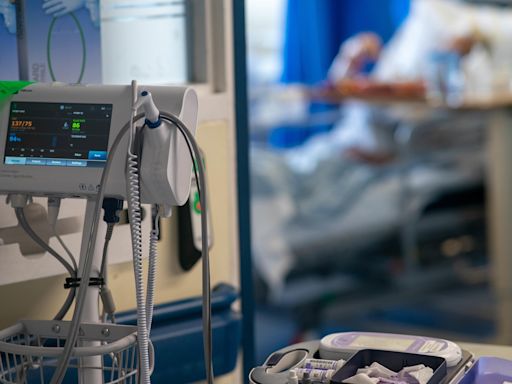Search results
People also ask
How does sepsis occur after surgery?
What causes postoperative sepsis?
Can surgery help treat sepsis?
The team will respond and deliver basic life-saving care including intravenous antibiotics and fluids within the first few hours. Then they will plan any further steps you may need, such as specialist scans or X-rays and possibly further surgery, to help control the sepsis.
- 4MB
- 8
Jun 7, 2023 · How does sepsis occur after surgery? Infection after surgery can cause sepsis. This could be infection in the incision (the opening in the skin) or an infection that develops after the surgery, such as pneumonia or a UTI. When you have surgery, it is important to monitor the incision, watching it for signs of infection. This would be:
- On this page
- Symptoms
- When to see a doctor
- From Mayo Clinic to your inbox
- Causes
- Risk factors
- Complications
- Associated Procedures
- Products & Services
•Overview
•Symptoms
•When to see a doctor
•Causes
•Risk factors
•Complications
Symptoms of sepsis
Symptoms of sepsis may include:
Symptoms of septic shock
Sepsis may progress to septic shock. Septic shock is a severe drop in blood pressure. Progression to septic shock raises the risk of death. Symptoms of septic shock include:
Any infection could lead to sepsis. Go to a health care provider if you have symptoms of sepsis or an infection or wound that isn't getting better.
Symptoms such as confusion or fast breathing need emergency care.
Sign up for free and stay up to date on research advancements, health tips, current health topics, and expertise on managing health. Click here for an email preview.
To provide you with the most relevant and helpful information, and understand which information is beneficial, we may combine your email and website usage information with other information we have about you. If you are a Mayo Clinic patient, this could include protected health information. If we combine this information with your protected health information, we will treat all of that information as protected health information and will only use or disclose that information as set forth in our notice of privacy practices. You may opt-out of email communications at any time by clicking on the unsubscribe link in the e-mail.
Any type of infection can lead to sepsis. This includes bacterial, viral or fungal infections. Those that more commonly cause sepsis include infections of:
•Lungs, such as pneumonia.
•Kidney, bladder and other parts of the urinary system.
•Digestive system.
•Bloodstream.
•Catheter sites.
Some factors that increase the risk infection will lead to sepsis include:
•People over age 65.
•Infancy.
•People with lower immune response, such as those being treated for cancer or people with human immunodeficiency virus (HIV).
•People with chronic diseases, such as diabetes, kidney disease or chronic obstructive pulmonary disease (COPD).
•Admission to intensive care unit or longer hospital stays.
As sepsis worsens, vital organs, such as the brain, heart and kidneys, don't get as much blood as they should. Sepsis may cause atypical blood clotting. The resulting small clots or burst blood vessels may damage or destroy tissues.
Most people recover from mild sepsis, but the mortality rate for septic shock is about 30% to 40%. Also, an episode of severe sepsis raises the risk for future infections.
Request an appointment
By Mayo Clinic Staff
Feb 10, 2023
1.Forrester JD. Sepsis and septic shock. Merck Manual Professional Version. https://www.merckmanuals.com/professional/critical-care-medicine/sepsis-and-septic-shock/sepsis-and-septic-shock. Accessed Nov. 19, 2022.
•A Book: Mayo Clinic Family Health Book, 5th Edition
•Newsletter: Mayo Clinic Health Letter — Digital Edition
Overview. What is sepsis? Sepsis is a life-threatening medical emergency caused by your body’s overwhelming response to an infection. Without urgent treatment, it can lead to tissue damage, organ failure and death. Sepsis definition. Sepsis is your body’s extreme reaction to an infection.
Feb 10, 2023 · Surgery. Surgery may help to remove sources of infection, such as pus, infected tissues or dead tissues.
Mar 19, 2020 · Artificial intelligence, machine learning, and bedside scoring systems can assist the clinician in predicting post-operative sepsis. The public health role of the surgeon is key. This includes collaboration and multi-disciplinary antibiotic stewardship at a hospital level.
Mar 8, 2024 · Start antibiotics as soon as possible in addition to other therapies appropriate for the patient. If a specific bacterial cause of sepsis is known, therapy should be targeted to optimize treatment, and broad-spectrum antibiotics might not be needed. Check patient progress frequently. Treatment requires urgent medical care, usually in an ...

